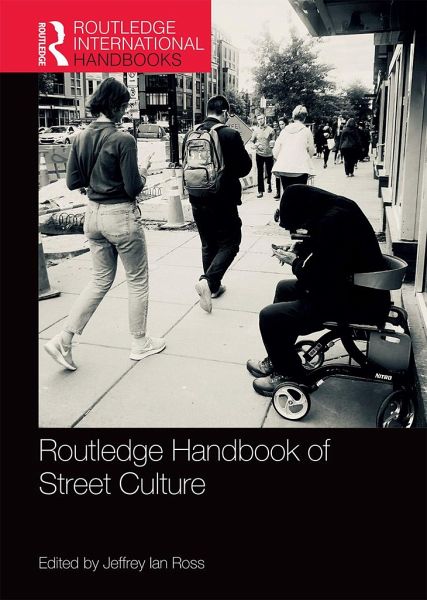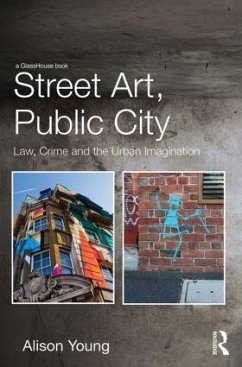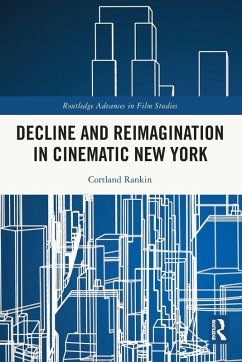
Routledge Handbook of Street Culture

PAYBACK Punkte
25 °P sammeln!
Discussions of street culture exist in a variety of academic disciplines, yet a handbook that brings together the diversity of scholarship on this subject has yet to be produced. The Routledge Handbook of Street Culture integrates and reviews current scholarship regarding the history, types, and contexts of the concept of street culture. It is comprehensive and international in its treatment of the subject of street culture. Street culture includes many subtypes, situations, locations, and participants, and these are explored in the various chapters included in this book. Street culture varies...
Discussions of street culture exist in a variety of academic disciplines, yet a handbook that brings together the diversity of scholarship on this subject has yet to be produced. The Routledge Handbook of Street Culture integrates and reviews current scholarship regarding the history, types, and contexts of the concept of street culture. It is comprehensive and international in its treatment of the subject of street culture. Street culture includes many subtypes, situations, locations, and participants, and these are explored in the various chapters included in this book. Street culture varies based on numerous factors including capitalism, market societies, policing, ethnicity, and race but also advances in technology. The book is divided into four major sections: Actors and street culture, Activities connected to street culture, The centrality of crime to street culture, and Representations of street culture. Contributors are well respected and recognized international scholars in their fields. They draw upon contemporary scholarship produced in the social sciences, arts, and humanities in order to communicate their understanding of street culture. The book provides a comprehensive and accessible approach to the subject of street culture through the lens of an inter- and/or multidisciplinary perspective. It is also intersectional in its approach and consideration of the subject and phenomenon of street culture.














